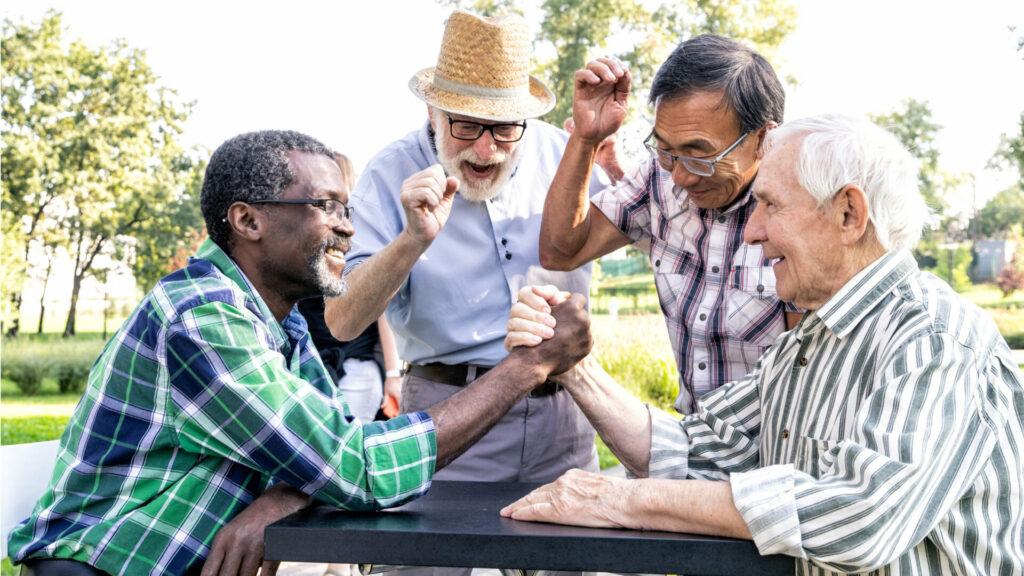As the sun sets on a long and fulfilling career, many seniors find themselves at a crossroads. What now? Retirement, once thought of as a time to slow down, has transformed into an opportunity for vibrant living and active engagement. This article explores how embracing an active lifestyle in our golden years not only enhances well-being but revitalizes the spirit.
The New Definition of Aging
Decades ago, aging was often associated with illness, isolation, and a decline in vitality. However, the contemporary understanding of aging refutes these stereotypes. The World Health Organization puts forth that adults aged 60 and above can live full, active lives that are both productive and rewarding. The trend towards longevity has encouraged more people to adopt healthier habits, engage in physical activity, and contribute to their communities, effectively redefining the senior experience.
Physical Activity: The Key to Vitality
Regular physical activity is not just good for the body; it is essential for maintaining mental health. The Centers for Disease Control and Prevention (CDC) recommend that older adults engage in at least 150 minutes of moderate-intensity aerobic activity each week. Not only does this promote cardiovascular health, but it also strengthens muscles and enhances flexibility.
Popular activities among seniors include walking, swimming, and yoga. Walking, especially, is esteemed for its simplicity and accessibility. Many communities offer walking groups, making it a social event as well as a physical one. The incorporation of gentle strength training can also improve bone density, which is essential as we age.
Mental Engagement: Lifelong Learning
Staying mentally active is equally important. Studies suggest that engaging the mind through reading, learning a new skill, or even playing challenging games can prevent cognitive decline. Many organizations now offer classes specifically tailored to seniors, covering topics like art, history, or technology.
This philosophy encourages seniors to embrace new experiences. Learning does not have to stop at a classroom. Book clubs, discussion groups, and workshops allow for collaborative learning, fostering a sense of community.
The Importance of Social Connections
Social engagement holds extraordinary power in combating loneliness and depression, which can be prevalent among seniors. Studies show that maintaining strong social ties and participating in community activities can lead to healthier and longer lives.
Seniors can find myriad opportunities in their communities: volunteer work, gardening clubs, and local sports leagues are just a few avenues to meet new people and forge friendships. Senior centers often serve as hubs, offering a range of activities that encourage interaction and foster camaraderie.
Nutrition: Fueling the Body and Soul
Nutrition plays a pivotal role in achieving a vibrant lifestyle. The transition to retirement often comes with changes in dietary needs. According to the Academy of Nutrition and Dietetics, seniors should focus on nutrient-dense foods, which include fruits, vegetables, lean proteins, and whole grains.
The Mediterranean diet, rich in healthy fats, fiber, and antioxidants, has been linked to improved cognitive function and reduced risk of chronic diseases. Cooking classes and nutritional seminars are great enhancements for seniors who wish to learn about healthy eating while meeting others who share similar interests.
Technology: A Bridge to Connection
In an increasingly digital world, technology can enhance connection and accessibility. Many seniors are turning to smartphones and tablets to stay in touch with family and friends through social media, video calls, and messaging apps. Mastering basic tech skills can open up a new realm of engagement.
Programs designed to teach seniors how to use technology are flourishing in many communities. From creating family photo albums to how to shop online, technology can significantly alter the quality of life.
Finding Your Passion
Perhaps the most critical aspect of an active senior lifestyle is the pursuit of passion. Whether it’s painting, hiking, or gardening, finding what brings joy can lead to happiness and fulfillment. Many seniors are returning to hobbies they set aside during their working years, invigorating their spirits.
Clubs and organizations dedicated to specific hobbies are thriving, offering a community of shared interests. Participating in such activities can also pique personal growth, challenge the mind, and create lasting memories.
Conclusion: A Vibrant Future
In our golden years, one should not think of slowing down but instead embrace the opportunities life has to offer. Staying physically active, mentally engaged, socially connected, and nutritionally aware creates a holistic approach to aging. The perception of old age as a period of decline is being replaced with a vibrant narrative of growth, adventure, and community. Every individual has the power to craft their story in their golden years, ushering in a new chapter full of zest and vitality.









